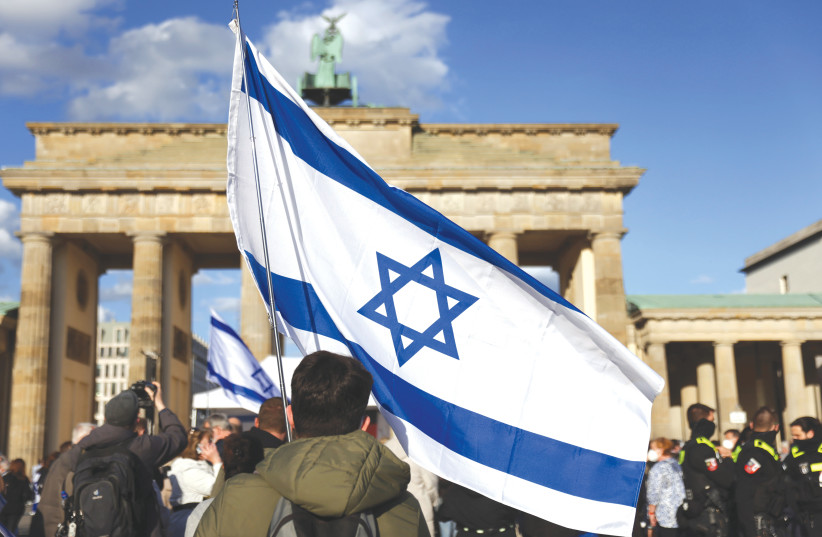The number of antisemitism incidents in Austria spiked in the first six months of 2021, with the conflict between Israel and Gaza in May a trigger for heightened levels of anti-Jewish sentiment in the country.
This is the highest number of incidents since records began 20 years ago, and nearly the same total for the entire year of 2020, the Antisemitismus Meldestelle organization found.
The Austrian Jewish community formally numbers some 8,000 people, but could be as high as 15,000.
In total, there were 562 reported antisemitic incidents in Austria in the first half of 2021, compared to 257 such incidents in the same period of 2020, an increase of 118%.
Notable incidents included references to “well-poisoning” in a speech by an activist by “Palestine Solidarity Austria” in May, and the antisemitic Islamic chant “Khaibar, Khaibar ya Yahud” which implicitly threatens violence against Jews.
The incidents included eight physical assaults, 11 threats, 58 incidents of damaged property, 154 incidents of the distribution of antisemitic literature, and 331 other forms of antisemitic abusive behavior.
Even before the conflict between Israel and Gaza, antisemitic incidents were on the rise, with more than 100 incidents recorded in one month, 103 in April, for the first time ever.

This included an ongoing series of incidents related to COVID-19 and antisemitic associations of the pandemic with Jews.
Antisemitism then spiked dramatically in May with 167 incidents that month, 3.4 times the monthly average for 2020, with 74 of those incidents relating to Israel and 60 relating to Holocaust denial or relativization.
Of the 562 incidents for the first six months of 2021, it was possible to ascribe an ideological category for 415 of them, the majority of which were committed by those identified with right-wing leanings.
Some 244 incidents in total were reported as having a right-wing ideological cause, 100 left-wing, 71 by Muslims and 147 were not undetermined.
Of the eight physical assaults, however, four were carried out by Muslims, one by a right-wing individual, and the other three undetermined.
Other significant antisemitic incidents included an attack in May in Vienna when stones were thrown at a recognizably Jewish family, and an incident in May when four Jewish girls were harassed, pushed and insulted with antisemitic abuse by a group of children of the same age.
The Antisemitismus Meldestelle report stated that in general victims of antisemitic attacks are “extraordinarily unwilling to report these incidents,” meaning the true number of incidents is likely significantly higher.
“The staggering number of cases reveals the reality many members of our community are facing every day,” said Oskar Deutsch, president of the Jewish Communities of Austria, in response to publication of the report.
“Austrian Jews rely on highly professional security measures by our community’s security staff, police and army. This unique cooperation serves as a best-practice example for Jewish communities all over Europe. However, there‘s still a lot of work to be done.
“The latest rise in antisemitic incidents was driven by two factors: anti-Israel agitation and conspiracy theories in the context of the current pandemic. All parts of society in Europe must understand that antisemitism is a threat to democracy as a whole and that everybody needs to fight it before antisemitic words turn into antisemitic action.”
